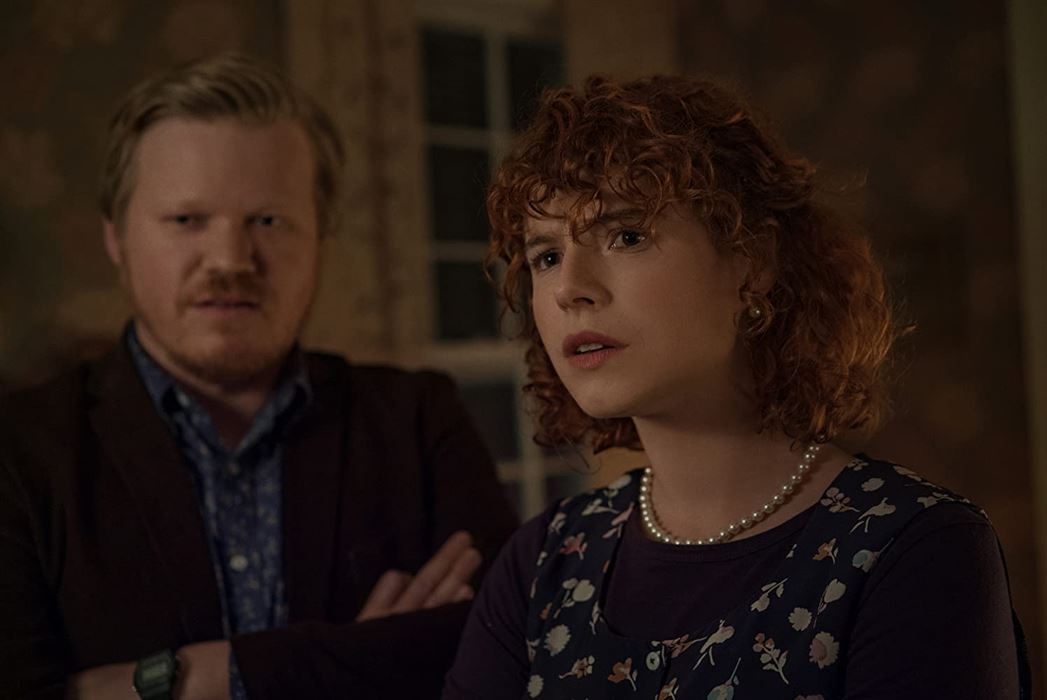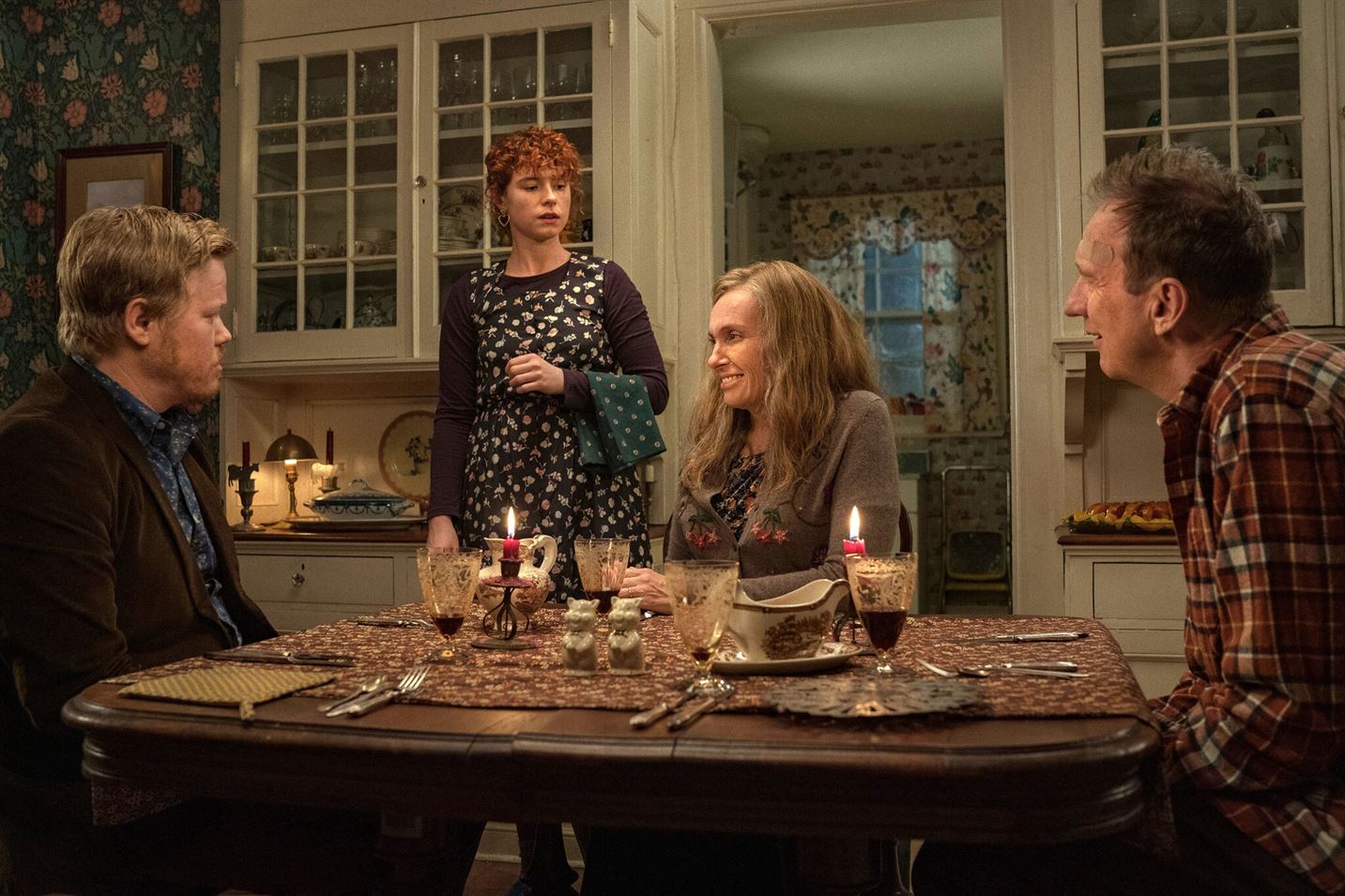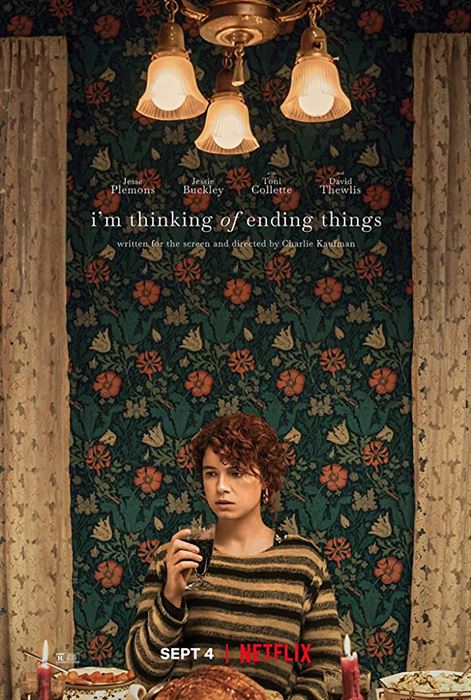Charlie Kaufman’s latest film, “I’m Thinking of Ending Things,” based on a novel of the same name by Iain Reid, is his most Kaufman yet, a feat which bears both consequence and triumph. The film, which premiered on Netflix Sept. 4, requires a predisposition to Kaufman’s cinematic language to view it and the patience of a kindergarten teacher, but, the payoff is fantastic.
Kaufman is fascinated by the concept of the miserable man and his perceptions of femininity. His career exploitation of the lonely male psyche reaches its most intense and obscure in “I’m Thinking of Ending Things,” which centers around a theme that is equal parts condemning and lauding of women. The film is most potent in its consequences of musing and the point at which the manic pixie dream girl becomes a mortal opponent.
The story begins with Jake and “Lucy,” a young couple on a snowy drive to visit Jake’s parents. Lucy’s omniscient voice narrates her inhibitions about the relationship through prolific monologues, punctuated by snowflakes or cut short by interjections from Jake. Upon arrival at the home, the family dinner descends into dream logic, cerebral madness and quantum distortion.
Lucy and Jake’s story is intercut with a second, more sporadic linear thread which follows the mundane routine of a high school janitor. The two threads often blend into one another, hidden by skillful editing and well-thought transition.

The story begins with Jake, played by Jesse Plemons, and Lucy, played by Jessie Buckley, going to meet Jake’s parents.
Photo courtesy of Netflix
Rejection of genre allows for the film to bounce between cruel humor and horror tropes. “I’m Thinking of Ending Things” eventually finds its home in Kaufman’s uncanny valley of cryptic cinema. There are moments where Kaufman’s convolution goes unchecked in his dual writer-director role and the niche becomes indigestible.
However, even Kaufman’s failures in this film seem to serve narrative function.
The compressed 4:3 aspect ratio imprisons the characters into their uncomfortable world, creating a cell locked by nostalgia. The distinct quality of memory, which festers in the senses, is captured by the film’s successful rendering of sensory perception.
Imaginative dialogue, cinematography and production design work in conjunction to create the atmosphere essential to the film’s success. Kaufman’s ability to create sensation is especially evident in the constant battle between warm and cool tones that dominates the screen: the smell of a steaming hot plate of turkey dinner against the bitter cold of a milkshake sliding down your throat on a snowy day.
“I’m Thinking of Ending Things” translates the best qualities of every art-form (theater, painting, etc.) for the screen, culminating in a beautiful triumph for visual storytelling.
Jessie Buckley dominates in the role of the unnamed young woman and offers an outstretched hand up the rocky path of Kaufman’s narrative obscurity. Her performance is seamless and natural, lending a sense of stability in a film entirely void of such.

“I’m Thinking of Ending Things,” based on the novel by Iain Reid, is written and directed by Charlie Kaufman.
Photo courtesy of Netflix
Despite the constant shifting of her own identity, Buckley commands with a craftsmanship that eases any precariousness. She is joined in the commitment to Kaufman’s lunacy by an equally impressive ensemble cast, including most notably, “Hereditary” star, Toni Colette.
Kaufman cannibalizes a variety of popular culture references into the conversations, plot and aesthetics of his film, commenting on the ways in which media shapes our consciousness. His exploitation of references may be perceived as a pseudo-intellectual barricade gatekeeping interpretation, but, it is better represented as a fascinating exploration of the things people choose to hoard in their mental cabinets. Still, the frustration of the film’s inaccessibility is present and perhaps even intentional.
The audience takes on the role of the muse, victimized to the empty philosophical ramblings and imposition of intelligence by a man whose mother will never let him forget he was awarded a medal for diligence rather than good judgement.
Kaufman wields a Lynch-ian gun loaded with surrealist fascination for the strange and neurotic, creating stories of fantasy that re-imagine childhood senses of fear, confusion and wonder for the cynical adult. “I’m Thinking of Ending Things” may be better considered a week long commitment to self-reflection and existential dread than a two-hour perversion of a horror film.
The great resolve of Kaufman’s latest film is whether we fall on the side of fascination of ingenuity or deprecation of pretension in response to abstract art. Generally, today’s audiences seem disillusioned by Hollywood’s formulaic writing and while “I’m Thinking of Ending Things” may have missed for many, it is indicative of a hunger for something new.
With the advent of streaming services and the increasing accessibility of production, the opportunity for a new wave of filmmaking, with lunatics like Kaufman at the forefront, is both imminent and exciting.



